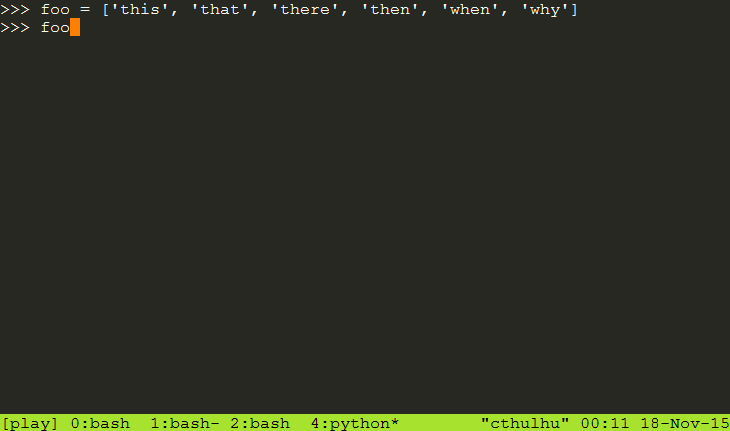blob: 3fe0c2aa481b7a073f2799a12853b15f5fd928ea (
plain)
1
2
3
4
5
6
7
8
9
10
11
12
13
14
15
16
17
18
19
20
21
22
23
24
25
26
27
28
29
30
31
32
33
34
35
36
37
38
39
40
41
42
43
44
45
46
47
48
49
50
51
52
|
pyfzf
=====


##### A python wrapper for *junegunn*'s awesome [fzf](https://github.com/junegunn/fzf).

Requirements
------------
* Python 3.6+
* [fzf](https://github.com/junegunn/fzf)
*Note*: fzf must be installed and available on PATH.
Installation
------------
pip install pyfzf
Usage
-----
>>> from pyfzf.pyfzf import FzfPrompt
>>> fzf = FzfPrompt()
If `fzf` is not available on PATH, you can specify a location
>>> fzf = FzfPrompt('/path/to/fzf')
Simply pass a list of options to the prompt function to invoke fzf.
>>> fzf.prompt(range(0,10))
You can pass additional arguments to fzf as a second argument
>>> fzf.prompt(range(0,10), '--multi --cycle')
Input items are written to a temporary file which is then passed to fzf.
The items are delimited with `\n` by default, you can also change the delimiter
(useful for multiline items)
>>> fzf.prompt(range(0,10), '--read0', '\0')
License
-------
MIT
Thanks
------
@brookite for adding Windows support in v0.3.0
|
